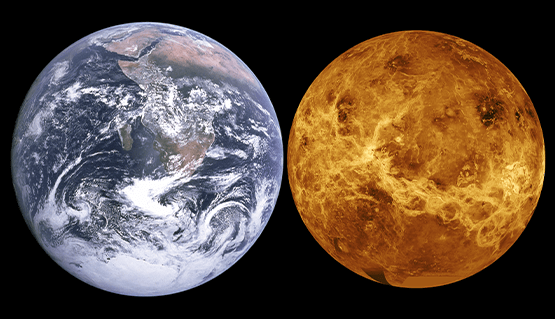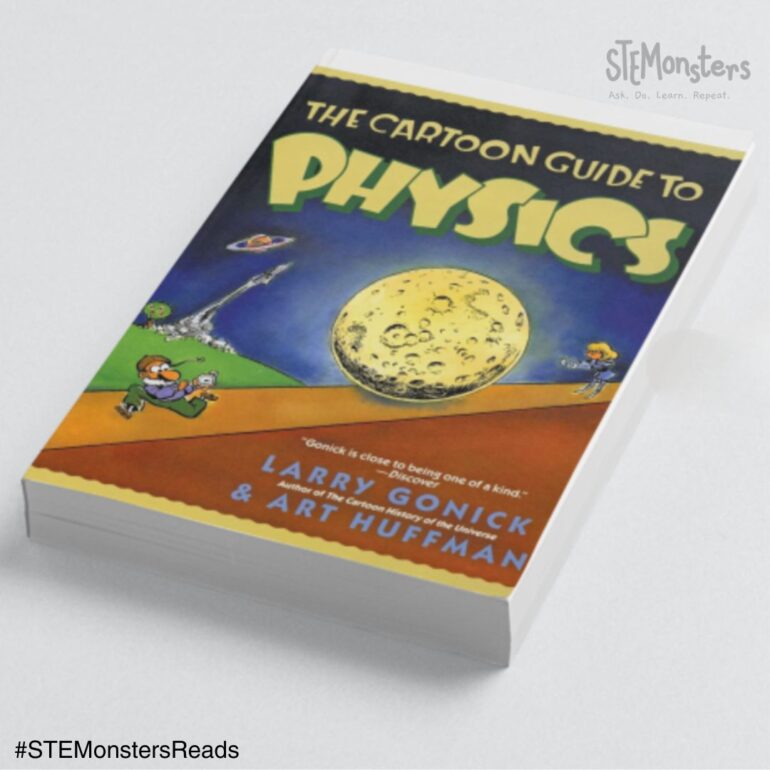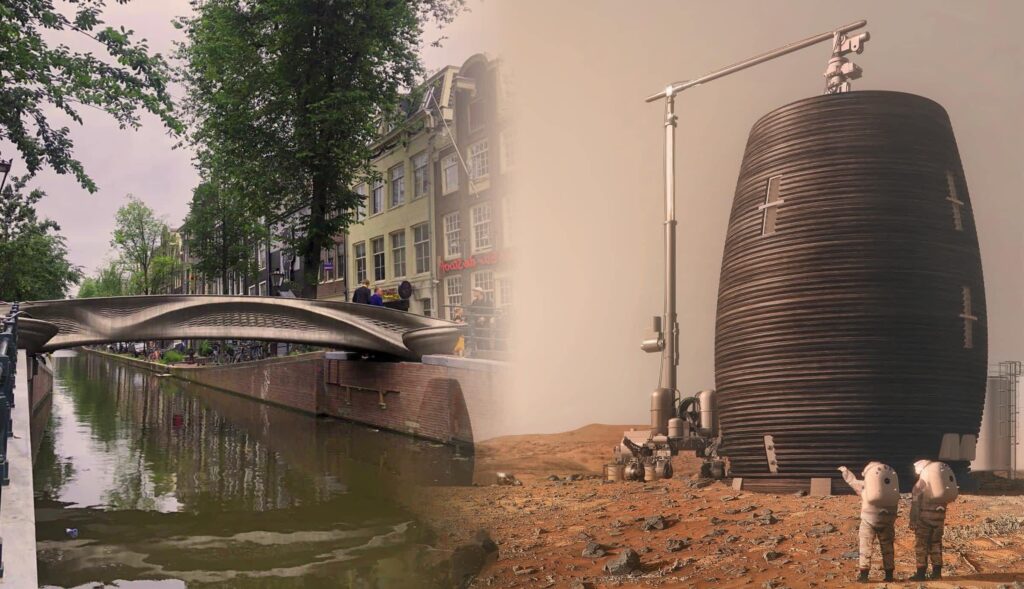Venus is named after the Roman goddess of love and beauty. If you’re a sky gazer, you might know Venus as the bright “star” appearing in the evenings. This gives it the name the “Evening Star”. The dimensions and structure of Venus are very close to that of Earth’s. Both Earth and Venus share similar construction of the crust, mantle and core. Thus, Venus is also known as Earth’s twin planet.
But don’t be fooled by the shiny appearance of Earth’s twin planet. The similarities end with just the structure and size. Venus is a burning ball of fire with extreme temperatures and conditions that are in sharp contrast to Earth’s that supports life.
Why is that so? Was the climate on Venus always so harsh? Stick around and we’ll discover it together.
Taking off for a trip to Venus
Let us rent a spaceship, a few spacesuits, sufficient food and take off to Venus! It would take us roughly 5 months to reach our destination with current space vehicle technology. Now you may want to jump off right away and explore after landing. But there are a couple of things to keep in mind before you start exploring Venus
- The surface temperature on Venus is generally above 400o C. For comparison sake, the highest recorded temperature on Earth till date is 56.7oC. An electric grill that makes your grilled cheese sandwiches is ideally set at 135oC. And a microwave oven bakes a cake at 180oC. So, in summary, Venus is very hot!
- Thunderstorms on Venus are also extreme. It rains sulphuric acid, and wind blows at a mind-numbing speed of 85 m/s. That is equivalent to a category V hurricane on Earth.
- The landscape of Venus is filled with erupting volcanoes. Lava flowing out of huge mountains is a common sight on Venus. ‘Maat Mons’ is the largest shield Volcano on the planet rising up to 8km above the planetary radius.
- Last but not the least, the atmospheric pressure on Venus is 90 times more than Earth’s atmospheric pressure. You would feel that kind of pressure if you were at least half a mile down underwater. That is quite unbearable.
So, as you may have gathered by now, Venus is not the most pleasant summer break destination.
What’s wrong with the atmosphere of Venus?
(Depiction of Venus’s atmosphere, Source: Astronomy.com)
Venus also has an atmosphere, just like our Earth. However, unlike on Earth, the atmosphere of Venus is primarily composed of greenhouse gases such as carbon dioxide. Carbon dioxide traps heat. This has created an extreme case of global warming on Venus, making it the hottest planet in the Solar System.
But some scientists speculate that Venus was not always like this. Venus may have been a habitable planet around 2.9 billion – 715 million years ago. The temperatures may have been just a few degrees cooler than Earth. Some experts even theorize that Venus may have had shallow oceans which contained water to support life. So, what may have happened to Venus to transform it to what it is today? Well, we still don’t know for sure.
Can there be life on Venus?
All the above information would lead you to believe that Venus is not suitable to support any kind of life forms. However, some scientists believe that life may still exist in Venus’s atmosphere.
The temperature and pressure on Venus’s atmosphere at about 50 km above the surface is very similar to that of Earth. In fact, recent research has found traces of Phosphine in Venus’s atmosphere – a potential sign of life. While some scientists contest that it is coming from the volcanoes, others think that it suggests the presence of microbial life at that height.
Are we facing the same fate as our twin planet?
Venus is a terrifying example of a planet whose atmosphere is dominated by greenhouse gases. If we are to believe the scientists who claim that Venus had Earth-like living conditions billions of years ago, can it not happen to our planet?
We are rapidly marching towards catastrophic levels of global warming. Can we not remind ourselves of the devastating acid rain and bone melting temperatures of Venus and be more conscious towards our own planet’s well-being? Even a tiny scrap of Venus’s current scenario will be enough to wipe off all the life forms from the face of Earth. Something to think about.
Returning back to Earth
Alright! The day is over. Venus is definitely not a pleasant place to stay. And clearly you don’t wish to spend much time there 🙂 But, did I mention that a day on Venus is equal to 243 days on Earth? In fact, Venus has the longest rotation period amongst all the planets in our solar system. So, that means you still have to spend another 242 Earth days before you can finish your 1 day on Venus!
References
- Life on Venus : https://en.wikipedia.org/wiki/Life_on_Venus
- https://www.epa.gov/ghgemissions/overview-greenhouse-gases
- https://www.nytimes.com/2020/09/14/science/venus-life-clouds.html
- National Geographic: https://www.youtube.com/watch?v=BvXa1n9fjow
- Phosphine: https://en.wikipedia.org/wiki/Phosphine
- https://www.rmg.co.uk/stories/topics/interesting-facts-about-venus
- https://www.nature.com/articles/d41586-021-00249-y
- https://astronomy.com/news/2020/08/how-floating-microbes-could-live-in-the-acid-clouds-of-venus
- https://earthsky.org/space/venus-length-of-day-spin-rate-axial-tilt-radio-waves/














